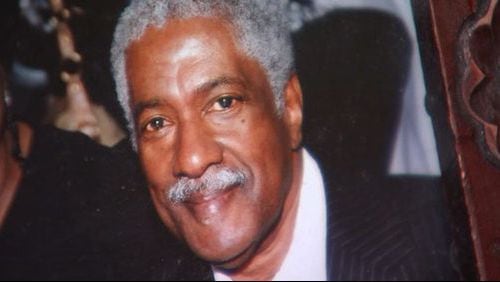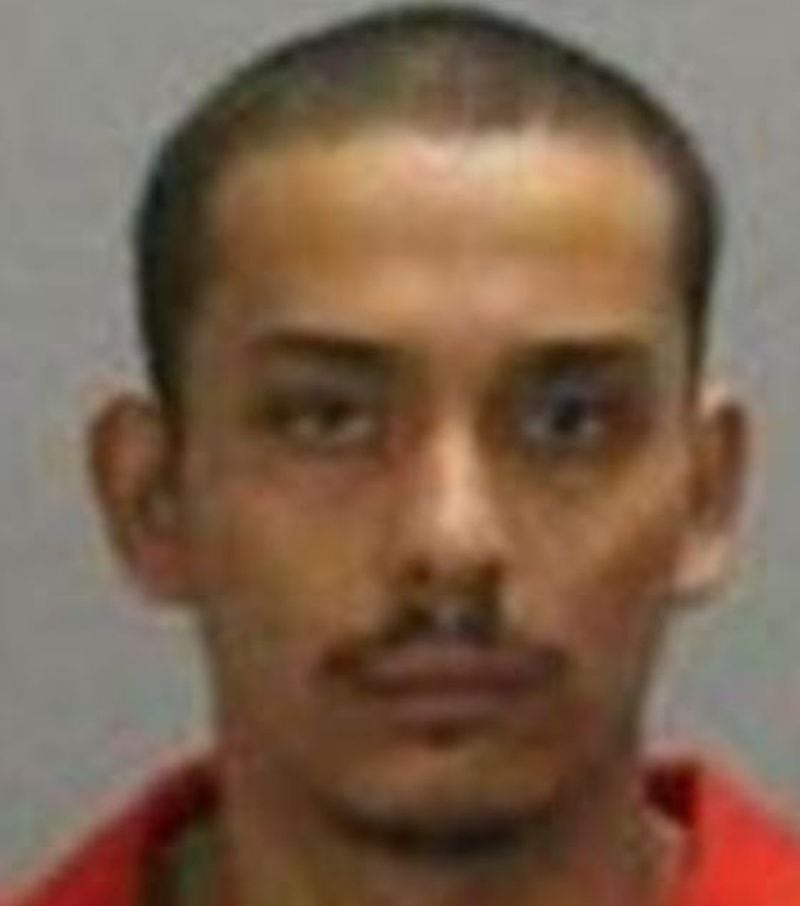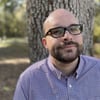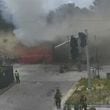As he made his case for a border wall in a prime-time national address, President Donald Trump pointed to the gruesome beheading of a 76-year-old Clayton County grandfather.
But it was unclear Wednesday if the southern barrier that Trump is pushing for would have kept the man accused in the killing, Christian Ponce-Martinez, out of the country.
Clayton County police told The Atlanta Journal-Constitution that Ponce-Martinez, 25, entered the U.S. at a checkpoint along the San Diego-Tijuana border in 2015, seeking asylum — not through an illegal crossing that would have been prevented by a wall.
U.S. Immigration and Customs Enforcement records show the government may have been trying to deport him at the time of the November killing, police said. ICE had designated him “inadmissible,” citing a federal law prohibiting immigrants who lack proper documents, a police official told the AJC.
Clayton County investigators have been unable to determine Ponce-Martinez’s movements over the years, and the ICE records do not show whether he has remained in the U.S. since 2015, or if he left the country or had been deported after 2015, but then somehow re-entered, police said.
The distinction is key to whether the brutal 2018 killing of Robert Page, found dismembered with part of his body in a cooler, could have been prevented by the $5.7 billion steel barrier expansion that Trump and his supporters envision, experts told the AJC.
The president strongly suggested as much in his eight-minute address Tuesday night. The case was one of several killings Trump described after questioning why, if a barrier is immoral, wealthy politicians build walls, fences and gates around their homes.
“Day after day, precious lives are cut short by those who have violated our borders. In California, an Air Force veteran was raped, murdered and beaten to death with a hammer by an illegal alien with a long criminal history,” Trump said. “In Georgia, an illegal alien was recently charged with murder for killing, beheading and dismembering his neighbor.”
A wall alone, however, won’t address the issue of asylum-seekers who surrender to authorities at border crossings, said Randy Capps, director of research for U.S. programs for the Migration Policy Institute. Clayton police said Ponce-Martinez entered at the San Ysidro Port of Entry, which connects Mexican Federal Highway 1 with I-5, and where tens of thousands of vehicles and pedestrians cross every day.
“If somebody came through a port of entry, it wouldn’t matter how high the wall is,” Capps said. “But if he came through another time later, then got caught by the Border Patrol after he’d been deported, then maybe it would have.”
The information provided by the Clayton County Police Department appears to contradict information disseminated by the White House after Trump’s speech Tuesday. The White House said U.S. Border Patrol encountered Ponce-Martinez in 2015 and ordered him to return to Mexico.
Asked to clarify Wednesday in light of the new information, the White House referred comments to Homeland Security, even though ICE and its division have been affected by the ongoing federal government shutdown. Driving the stalemate is Trump's demand for border wall funding, which congressional Democrats oppose.
Homeland Security is one of the agencies without funding and most employees are either working unpaid or are furloughed. Attempts to reach spokespeople for ICE, which is part of Homeland Security, were unsuccessful because ICE press employees are out of the office. “We are unable to respond to media queries during this period because we are prohibited by law from working,” one spokeswoman’s automatic email response said.
Raúl Hinojosa-Ojeda, an associate professor and immigration expert at the University of California, Los Angeles, said it’s a stretch to imagine that both the police information and the White House statement could be correct — that Ponce-Martinez entered as an asylum seeker in 2015, then got summarily ejected. The system usually doesn’t move that fast, he said.
“It does not seem very logical that he somehow had been let into the country under an asylum petition, and that somehow he would have been then just sent back for no reason,” Hinojosa-Ojeda said. “Unless his case was heard, and he was denied asylum, then he would be sent back. But we have no evidence of that.”
Clayton County Police Department spokeswoman Marcena Davis told the AJC that at the time of his arrest, Ponce-Martinez was living in a house on Fieldcrest Drive in Morrow with family and friends.
Police told the AJC he has said very little to investigators. Early reports that he had moved to Clayton County from Mexico three months ago resulted from confusion — some of his acquaintances actually told investigators they had known him for three months, police said.
Page disappeared one day in early November. Police allegedly found Ponce-Martinez — Page's neighbor — hiding under a sofa behind the Morrow house where he had been renting a room. He had Page's cellphone, police said.
Officers saw a trail of blood and followed it, soon finding the 76-year-old’s remains. Part of the body was in a cooler, some was under tarps in the backyard. Security camera footage revealed that Ponce-Martinez had been on Page’s property.
“We do not know why he went and killed Mr. Page,” Clayton Police Capt. Scott Stubbs told Channel 2 Action News in answers to written questions. “It does not appear that any items were taken from his residence and we do not have any information that there was any prior disputes or conflicts.”
-Atlanta Journal-Constitution reporter Tamar Hallerman contributed from Washington, D.C.









